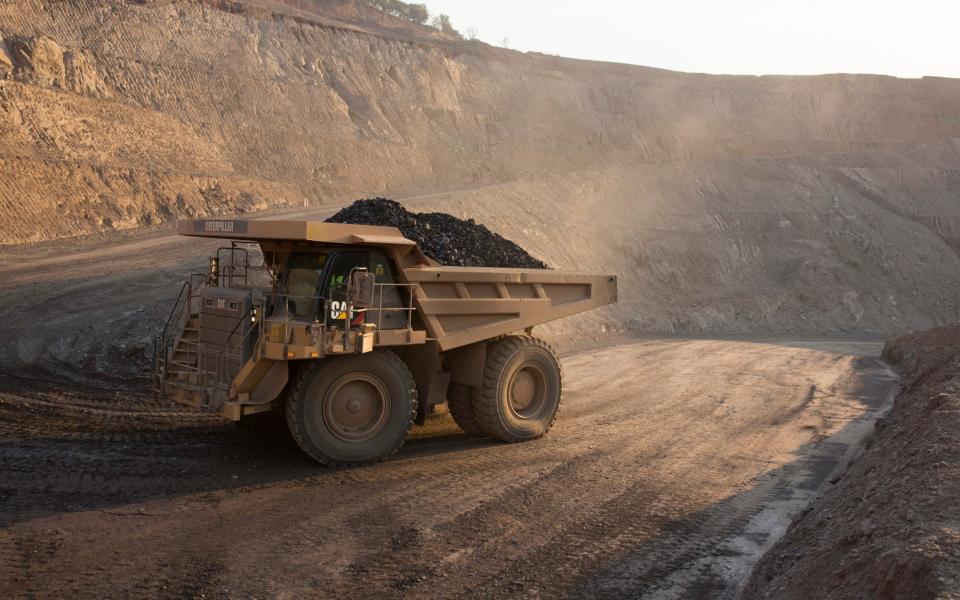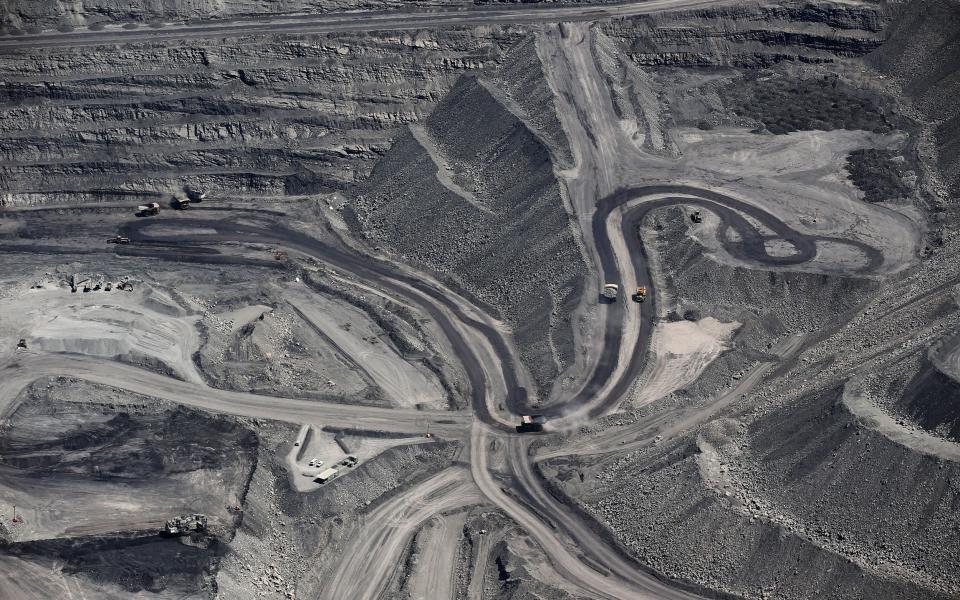Coal remains king for Glencore as shareholders resist activist pressure

Coal has made Ivan Glasenberg a very wealthy man. It isn’t surprising, therefore, that the billionaire former boss of Glencore is against spinning off the miner’s coal assets.
In fact, he argues that there is no environmental benefit at all from shareholders pushing miners to sell or separate coal mines from their other activities.
Last year Glasenberg, who was once a coal trader and remains Glencore’s second largest shareholder, said: “How does that help the world to reach the Paris [climate] accord?
“Those mines are going into the hands of other players who have no intention of reducing scope three emissions and if anything it gives them a free hand to start producing more.”
Activist investor Bluebell Capital Partners disagrees. In a letter to the FTSE 100 company earlier this month, the hedge fund urged Glencore to “chart a new future” without coal, demanding it spin off its thermal coal business, divest non-core assets and improve corporate governance.
Signed by Bluebell’s partners Giuseppe Bivona and Marco Taricco, the letter said: “Due to its coal business, Glencore is not an investable company for investors who place sustainability at the heart of their investment process.
“A clear separation between carbonised and de-carbonised assets is needed to increase shareholder value and remove the ‘coal discount’, whilst simultaneously ensuring that coal assets will be managed responsibly.”
Bluebell has a stake in Glencore but it has not yet disclosed its size.
Glencore’s strategy on coal is at odds with rival miners. BHP and Rio Tinto have either sold their mines or set out plans to withdraw from extracting the world’s most polluting fossil fuel. Glencore, however, has received backing from 94pc of its investors for plans to keep running its mines with capped production until all coal has been removed by 2050.

Coal remains a major source of revenue for the Anglo-Swiss company. It is expected to produce bumper full-year results and hand cash back to shareholders after prices hit record levels during the recent energy crunch in China.
In response to the letter, Glencore said: “We are confident that our business model is uniquely placed to produce, recycle, and market the materials needed to decarbonise energy whilst reducing our own emissions and delivering value for stakeholders.”
But Bluebell argues this strategy is “morally unacceptable and financially flawed”. The letter said that “a clear separation between carbonised and decarbonised assets is needed to increase shareholder value”.
Despite being relatively small, London-based Bluebell has gained a reputation for mounting successful campaigns, ousting the chief executive of food and drinks company Danone earlier this year. It also followed Elliott Investment Management in taking a stake in pharma giant GlaxoSmithKline earlier this year, becoming an ally in pressuring for a change in leadership against Dame Emma Walmsley.
Analysts and investors, however, don’t think Glencore’s bosses need be worried.
One top 25 shareholder says they were surprised by Bluebell’s letter. “It looks about two years out of date,” they add.
The timing is certainly interesting. While rivals have agreed to divest from coal several years ago, there is a growing view within the industry that selling or spinning off assets can lead to more coal being mined for longer as those who want to continue producing the commodity take ownership.
The investor says: “Glencore have been discussing this openly for years and it capped coal production in 2019. Selling assets into the private world is no longer seen as an effective way to reduce emissions.”
Ben Davis, an analyst at Liberum, is equally bemused. He says many of the demands made by Bluebell have been raised before, calling them “largely nonsensical”.
The market did not appear particularly fussed either - shares in Glencore closed flat on Tuesday.
Bluebell’s letter is just the latest move by an activist investor seeking to influence how natural resource behemoths embark on a transition to green energy. In recent months, oil and gas giants Royal Dutch Shell and ExxonMobil have both been the target of activist campaigns.
In Shell’s case, Wall Street raider Third Point demanded a break-up of the oil and gas giant, saying the FTSE 100 firm should put its oil and refining operations into a separate business focused on returning cash to shareholders. However, top investors have backed Shell’s transition plans.
While Glencore has embarked on an internal shake-up, Glasenberg’s remaining influence means it will be difficult for Bluebell to effect change. The South African businessman owns a 9.2pc stake, while several other former managers also have big holdings. In June he was replaced as chief executive after nearly two decades by Gary Nagle, while a new chairman was also brought in.
Aside from spinning off assets, Bluebell wants to see improvements in corporate governance at the company - Glencore has faced a number of legal investigations, including an ongoing one by the US Department of Justice into alleged bribery and corruption.
The letter said: “We recognise that a company in your sector will always be implicated in controversies, however, the sheer amount is a clear testament that the existing governance framework is failing to provide proper oversight and stewardship on the company’s operation.”
But other investors are concerned that such drastic actions would make Glencore unrecognisable and a takeover target. The top 25 shareholder says the miner could not spin off its coal business “without destroying value.”
Meanwhile Liberum’s Davis says that if Glencore got rid of its coal assets, it would likely be bought by someone else, adding that “such a move would remove hurdles for BHP and Rio Tinto”.
The letter was likely leaked to coincide with Glencore’s annual investor day which takes place on Thursday, giving Nagle his first opportunity to outline his strategic plans for the business.
The South African has previously stated he would potentially be open to demerging the company's coal assets if it became an issue for top investors and has also begun the process of divesting non-core assets.
But the timing is true to form for Bluebell, according to the top 25 shareholder. “Bluebell is more of a publicist than an activist,” they jibe.

 Yahoo Finance
Yahoo Finance 